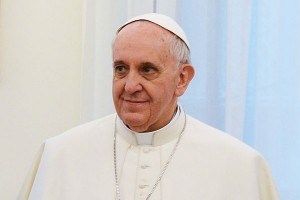 Rome, Italy — Pope Francis held his first ecumenical meeting at the Vatican Wednesday, greeting Christian, Muslim and Jewish leaders, as well as those who ascribe to no faith at all.
Rome, Italy — Pope Francis held his first ecumenical meeting at the Vatican Wednesday, greeting Christian, Muslim and Jewish leaders, as well as those who ascribe to no faith at all.
“For my part, I wish to assure you, following in the path of my predecessors, of my firm will to continue on the path of ecumenical dialogue,” he said, referencing the Second Vatican Council. “I also ask of you the kindness of a special prayer for myself, so that I might be a pastor in harmony with Christ’s heart.”
Speaking to the Jews that were present, Francis pointed to the Old Testament Scriptures as common ground.
“The Church of Christ acknowledges that … the beginnings of her faith and her election are found already among the patriarchs, Moses and the prophets,” he said. “I am confident that, with the help of the Almighty, we can profitably continue that fraternal dialogue that the council hoped for and that has been carried out, bearing not few fruits, especially over the last few decades.”
Francis said that he believes there is a “very spiritual bond” between Catholics and Jews around the world.
He then praised the Muslim leaders that had also come for the meeting, remarking that they were men who “adore the one, living, and merciful God and who call upon Him in prayer.”
Likewise, while he commented that the “attempt to eliminate God and the Divine from the horizon of humanity” by some has been disastrous for the world, Francis also extended a welcome to atheists and those who ascribe to no particular religion.
“I feel close to all men and women who, although not claiming to belong to any religious tradition, still feel themselves to be in search of truth, goodness and beauty,” he said. “[Atheists and nones] are our precious allies in the effort to defend human dignity, in building a peaceful coexistence between peoples, and in carefully protecting creation.”
Reports state that a number of atheists are favorable toward the new pope, mainly because of his humanitarian goals. In an article entitled Why This Atheist Has a New Hope in Pope Francis, author Luis Ruuska echoed this sentiment from a personal standpoint.
“As an atheist, I should not have any interest in the matters of the Catholic Church. … But I do,” he wrote. “I care about who is the head of the Catholic Church because similar to the way that one country’s economy can have drastic effects on another’s, what direction the world’s 1.2 billion Catholics take affects the rest of us.”
“If attitudes within Catholicism on women and women’s rights, poverty, and the LGBTQ community change on the global scale starting with the Vatican, then they will gradually change on the country-by-country scale as well,” Ruuska explained. “I do believe the pontiff to be a genuine man when it comes to taking care of the poor and perhaps we will see an increased interest in combating poverty from the Catholic Church.”
“I might not believe in God, but I believe that Catholics and atheists can work together just as all of humanity can work together towards equality and justice when we put the needs of modern people first and the arcane doctrine second,” he concluded. “He might not be the one to approve doctrine condoning same-sex marriage or approve doctrine changing global attitudes towards women and their rights, but Pope Francis certainly has all of the makings to shift the Catholic Church in a progressive direction; that is, if he wants to.”
Become a Christian News Network Supporter...


